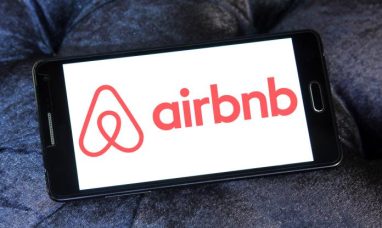Apple Inc. (NASDAQ:AAPL) is quietly developing its own artificial intelligence (AI) tools to rival those of OpenAI Inc. and Alphabet Inc.’s Google. While the company has yet to devise a clear strategy for consumer release, it has built its own framework called “Ajax” to create large language models, similar to OpenAI’s ChatGPT and Google’s Bard. Apple has also created an internal chatbot service referred to as “Apple GPT.” This AI push has become a major effort for Apple, with multiple teams collaborating on the project. The company is addressing potential privacy concerns related to the technology.
Apple stock reached a record high of $198.23, rising 2.3% following the news of its AI efforts. Microsoft Corp. (NASDAQ:MSFT), OpenAI’s partner and main backer, experienced a 1% dip in its shares in response.
Although Apple has incorporated AI features into its products for years, it has been playing catch-up in the generative AI market, where products like ChatGPT and Bard have gained significant traction. Apple has been absent from this space, with its main AI product, Siri, stagnating in recent years. However, the company has made progress in other areas, such as improving photo and search functionalities on the iPhone. It also plans to introduce a smarter version of auto-correct to its mobile devices this year.
Apple has recognized the importance of not missing out on the transformative potential of generative AI and has laid the foundation for AI services with the Ajax framework. This framework is being used to create large language models and serves as the basis for Apple’s internal ChatGPT-like tool. Although the chatbot app was initially halted due to security concerns, it has since been extended to more employees. However, special approval is required for access, and its output cannot be used for customer-facing features.
Apple is not the only company taking this approach, as others, including Samsung Electronics, have developed internal ChatGPT-like tools to safeguard sensitive data.
The Apple tool, which replicates features found in Bard, ChatGPT, and Bing AI, is currently accessible only as a web application with a stripped-down design not intended for public consumption. Apple has no immediate plans to release it to consumers but is actively working on improving its underlying models.
In addition to the technological advancements, Apple is grappling with determining the consumer angle for generative AI. The company is working on various related initiatives, involving cross-company collaboration between its AI, software engineering, and cloud services engineering teams. While there is no concrete plan in place, it is expected that Apple will make a significant AI-related announcement next year.
John Giannandrea, Apple’s head of machine learning and AI, and Craig Federighi, the top software engineering executive, are leading these efforts. However, there are differing opinions within Apple about the best approach, with Giannandrea favoring a more conservative approach to observing developments in the industry.
Apple previously conducted a trial of OpenAI’s technology and considered signing a larger contract with the company. The Ajax system is built on Google Jax, and Apple’s system runs on Google Cloud in conjunction with its own infrastructure and Amazon.com Inc.’s AWS.
As part of its ongoing work, Apple is looking to hire more experts in generative AI and large language models. The company aims to apply this technology to enhance communication, content creation, connectivity, and media consumption on its devices, particularly the iPhone.
Integrating large language models into Siri is seen as a promising opportunity for Apple, enabling the voice assistant to perform more tasks on behalf of users. Despite being launched in 2011, Siri has lagged behind competitors as Apple focused on other areas and prioritized privacy over feature adoption.
While Apple’s AI strategy has been called into question, CEO Tim Cook has defended the company’s approach, emphasizing that AI is utilized across its product lineup, including features like car crash and fall detection. Cook acknowledges the potential of large language models but also stresses the importance of guarding against bias and misinformation, calling for regulation in the space.
With the hiring of John Giannandrea in 2018, Apple signaled its commitment to AI. While the company hasn’t released many prominent AI features since then, it has two initiatives in the pipeline that could propel it forward: a health coaching service codenamed Quartz that incorporates AI for personalized plans based on Apple Watch data, and an electric car project that will utilize AI for self-driving capabilities.
Apple Stock Performance
Apple stock has gained approximately 55% year-to-date, compared to 19% for the S&P 500.
Featured Image: Unsplash @ Masaaki Komori















